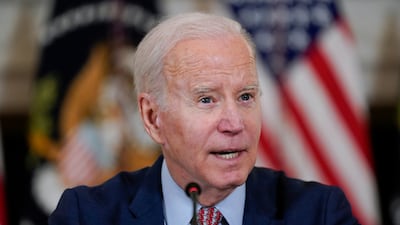US President Joe Biden has signed legislation to end the country's Covid-19 state of emergency weeks before it was due to expire.
The White House confirmed the move would not affect the end of the separate public health emergency, which is scheduled for May 11.
It issued a statement saying that Mr Biden had signed off the legislation behind closed doors.
Despite Mr Biden expressing strong opposition to the resolution in the past, he signalled he would sign it after its adoption in the Senate.
The bill to end the national emergency cleared the Senate last month in a bipartisan vote after passing the House earlier this year.
More than 197 Democrats in the House voted against it in February.
The move means an overhaul of the Covid-19 response in the US, now managed through health agencies as an endemic disease. The government claims the disease is more predictable and controllable than when it first emerged as a pandemic.
Also on Monday, the Health and Human Services Department said the US government would spend more than $5 billion to start "Project NextGen", an initiative to improve and create new Covid-19 vaccines.
It will also fund medical treatments and vaccines for different coronaviruses.
The national emergency allowed the government to take sweeping measures to respond to the virus and support the country’s economic, health and welfare systems.

Washington has been winding down some of its Covid-19 measures, while others are still being phased out.
For months, politicians have refused requests by the administration for billions more to extend free Covid-19 vaccination and testing.
Last year, legislators extended healthcare measures allowed for the delivery of care online for another two years.
More than a million people have died from Covid-19 in the US in the past three years, according to the Centres for Disease Control and Prevention.
Former president Donald Trump declared a national emergency in March 2020. It has been extended by Mr Biden’s administration since he took office in January 2021, broadening its use.

